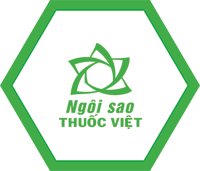Health Care /
Health tips
10 Kitchen Ingredients That Work Like Medicines
The use of natural ingredients in the treatment of minor to major health problem has become more and more common with every passing year. In fact, there are many common edible kitchen ingredients that can provide impressive health benefits.
The usefulness of these edible kitchen ingredients are not restricted to just their culinary use or to make your food tasty. These ingredients can help a lot to solve various healthy issues and that too without side effects. At the same time with home treatment you do not have to take the trouble of making appointments with your doctor or to spend money on over the counter or prescribed medicines.
Here are top 10 kitchen ingredients that also work like medicines.
1. Tumeric
Tumeric is one of the most common spices used in kitchen. It has antiseptic, antibacterial, anti-inflammatory as well as antioxidant properties. You can use this spice to treat common cold, cough, joint inflammation, arthritis, bruised skin, acne, pimples as well as various stomach ailments. At the same time tumeric can also be used to prevent Alzheimer's disease, to minimize liver damages caused due to excessive alcohol consumption or regular use of pain-killers and to disinfect minor cuts and burns. It has also been proved that due to its antibacterial properties, tumeric is beneficial in treating many types of cancer, most noticeably breast cancer, colon cancer, lung cancer and leukemia.
2. Ginger
Ginger has anti-inflammatory, antispasmodic, antifungal, antiseptic, antibacterial and antiviral properties. At the same time it is also a powerful natural analgesic or painkiller. Ginger is also a good source of potassium, manganese, silicon, phosphorus, sodim, iron, zinc, calcium, beta-carotene and vitamins A, C, E, B-complex. You can use ginger to treat an upset stomach, indigestion, nausea, motion sickness, regular body pain, arthritis pain, cold, cough or any other respiratory health problem, fever, heartburn and menstrual cramps. It has also been proved that ginger can be used to control ovarian cancer cells due to its ability to slow down the growth of cancer cells.
3. Cinnamon
Cinnamon has anti-oxidant, anti-diabetic, anti-septic, anti-inflammatory, carminative and anti-flatulent properties. At the same time this particular spice is also an excellent source of minerals such as potassium, calcium, manganess, iron, zinc and copper along with vitamin A, niacin and pyridoxine. Cinnamon is often used in the treatment of conmmon cold, flatulence, indigestion, heartburn, nausea, diarrhea, arthiritis pain and painful menstrual periods. It has also been found that regular consumption of cinnamon can help people suffering from type II diabetes to control their sugar level. It also helps to lower cholesterol level and reduces the risk of various types of heart diseases.
4. Garlic
Garlic is often referred to as a super food due to its diaphoretic, diuretic, expectorant, stimulant, antibacterial, antifungal, antiviral and antiseptic properties. In addition, garlic is also packed with vitamins and nutrients such as protein, potassium, calcium, zinc and many others. Garlic can be used in the treatment of asthma, hoarseness, cough, chronic bronchitis, ear infection, scratchy throat infection, flatulence, menstrual crampts, ringworm, stomach ache, colic, toothache, sinus, bug bites and indigestion. It even helps to lower cholesterol level and prevents strokes. Also this strong smelling herb reduces the risk of several types of cancer and heart diseases.
5. Clove
Clove has antioxidant, anti-septic, anti-inflammatory, carminative and anti-flatulent properties. At the same time, it is also high in vitamins, minerals and fiber. You can use clove in the treatment for various health conditions such as athelete's foot, minor burns, bruises, malaria, cholesra, flatulence, toothache, joint inflammation, oral ulcer, sore gums, loose motions, muscle ache, body pain, indigestion, nausea, gastric irritability and vomiting. Clove oil can be also used as an inhalant for treatin various respiratory problems such as cold, cough, sinusitis, asthma, bronchitis and tuberculosis. Although clove is generally considered safe, it may cause allergic reactions in some individuals.
6. Cardamom
This aromatic spice is also known as the "queen of spices". It has carminative, anti-oxidant, therapeutic, antiseptic, antispasmodic, diuretic and expectorant properties. At the same time cardamom is a good source of minerals such as potassium, calcium, copper, iron and magnesium. Cardamom is used in the treatment of stomach cramps, indigestion, flatulence, stomach gas, asthma, bronchitis, heartburn, acidity, bad breath, mouth ulcer, nausea, urinary tract infection and various kinds of respiratory allergies. Also cardamom helps to increase appetite, reduce stress level and to ease muscle tension. Although there are known side effects of cardamom, it should be avoided during pregnancy.
7. Cumin Seeds
Cumin seeds have anti inflammatory, carminative, antioxidant and anti-flatulent properties. The seeds are an excellent source of dietary fiber along with various minerals such as iron, copper, calcium, potassium, manganese, selenium and zinc. Cumin seeds are used in the treatment of indigestion, flatulence, stomach pain, diarrhea, morning sickness, nausea, acidity, common cold, cough, fever, sore throat, renal colic, amnesia and insomnia. It also boosts the metabolic rate and facilitates the absorption of nutrients throughout the body. Recent research has revealed that cumin also supports healthy prenatal development in pregnant women and slows down the growth of breast and colon cancer cells.
8. Honey
Honey has anti-viral, anti-fungal, antiseptic, anti-microbial and anti-parasitic properties. At the same time honey is also loaded with many essential vitamins and minerals like magnesium, potassium, calcium, sodium chlorine, calcium, copper, iron, manganese, sulphur, zinc and phosphate. Honey can be used in the treatment of cough, throat irritation, urinary tract infection, morning sickness, laryngitis, eczema, and stomach ulcer, canker sores, bleeding gums, minor wound, minor burn, skin infection and bed wetting. A great natural source of carbohydrate, honey can even instantly boost the performance, endurance and reduce muscle fatigue of athletes. It also reduces the risk of some cancers and heart disease. Raw honey is also used as a medication for issues related to male impotence and female infertility.
9. Onion
Onion has outstanding anti-inflammatory, antiseptic, antibiotic, carminative and antimicrobial properties. It is also a very good source of vitamin C, B6, biotin, chromium, calcium, dietary fiber, folic acid and vitamin B1 and K. Onion is hugely effective in the treatment of pneumonia, chronic bronchitis, insect bite, asthma, hay fever, diabetes, atherosclerosis, stomach infections, nausea, diarhea, common cold and cough. The diverse anti-cancer powers present in onion play a significant role in reducing the risk of various kinds of cancer. Also onion contains chromium, which assists in regulating blood sugar level amongst people who suffer from Type II diabetes.
10. Lemon
Lemon is known for its therapeutic, antioxidant and anti-cancer properties along with immune-boosting powers. It also has many nourishing elements like vitamin C, vitamin B, phosphorous, proteins, and carbohydrates. Lemon has a multitude of medicinal uses and is often used in the treatment of headache, arthritis, pneumonia, minor cut, throat infections, indigestion, constipation, dental problems, fever, dandruff, internal bleeding, rheumatism, burns, overweight, respiratory disorders, cholera, kidney stone and high blood pressure. When consumed regularly, lemon also helps to prevent many dangerous diseases like stroke, cardiovascular diseases and various types of cancers.
To conclude, as now you have some idea about the incredible health benefits of the above mentioned common kitchen ingredients, you must make effort to incorporate some of them into your everyday diet plant. This way you can improve your health and live a better life.




